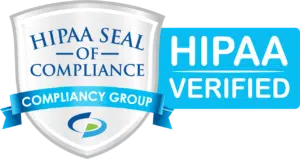A Realistic Look at Pros & Cons
Recent and continuing CMS policy changes are shaping the non-medical home care landscape in ways that would have been unimaginable just a few years ago! The mythical “unicorn” of funded caregiver services beyond veterans’ benefits and long-term care insurance is slowly becoming a reality. More specifically, Medicare Advantage (MA) plans are starting to offer qualified members non-medical (custodial) caregiver benefits.
Background
CMS relaxed rules on “supplemental” benefits beginning in 2019. These changes were significant but only compelled a small minority of MA plans to include limited home care offerings. However, 2020 may prove far more pivotal, as CMS is implementing another change that will essentially allow Medicare Advantage plans to provide home care benefits to all chronically-ill members at their discretion.
In light of 2020’s CMS “green light,” most experts anticipate far greater home care utilization in the next few years. But specifics are still hard to predict. Some even suggest MA plans will likely start with smaller trials in order to assess the results before making bigger investments.
However the timing plays out, these developments are considered game-changers for many forward-thinking home care agencies and beg the question, “Should we try to secure provider contracts with Medicare Advantage plans?”
The answer is complex and may vary from company to company. Additional revenue streams are great, but there are certainly tradeoffs. The logistics and operational realities matter.
Pros
Additional Revenue Streams – Generally speaking, additional revenue streams promote home care agency success. Not only is gross revenue the life-blood of business, but diversifying sources is also prudent. Many agency owners would agree that $100,000 in revenue is “safer” when split among multiple sources as opposed to originating from one single account.
Possible Private-Pay Referrals – Some agencies that have already joined MA provider networks are also leveraging for increased private-pay referrals. The idea is these same referral sources may have lucrative business beyond the limits of their own subsidized home care plans. It’s certainly reasonable to assume that building relationships with potential Medicare Advantage referral sources may lead to more referrals across the board.
Good PR & Marketing – Savvy home care agencies may be able to leverage their “partnerships” for highly-effective PR and marketing campaigns. After all, a sales representative who references an official contract with the area’s most respected MA plan is sure to make a favorable impression on local hospital and facility staff!
The Medicare affiliation can also be used in internet and social media marketing. Really forward-thinking agencies may even find ways to merge the messaging into their client assessment “pitches.” This can give them a credibility edge over competitors and result in higher start-of-care conversion rates.
Cons
Contracting Timelines & Opportunity Cost – Anybody who’s ever inked a contract with a large organization knows the process isn’t always easy. It can take months to even identify the right “gatekeepers” and confirm the prospect is open to bringing on new providers. Even once that work is completed, the contract negotiations may stall or collapse entirely.
Low Contracted Rates – Under most conditions, it’s safe to assume MA plans offer home care providers reimbursement that is lower than their standard rates and/or market average. Perhaps the lower margin is offset by volume, but that decision must be weighed holistically and realistically.
Staffing Challenges – It’s no secret that home care agencies already struggle with managing caregiver shortages. For this reason, many companies have hourly minimums and other policies designed to promote steady caregivers schedules. The prospect of low-hour, intermittent MA plan cases may simply be unrealistic and unprofitable for many companies.
Increased Operational Costs – The afore-mentioned labor challenges obviously factor into the costs associated with accommodating MA contracts. But there are “hidden” costs too in the form of general overhead. High-volume, low-hour cases lower overall margins and they can also take a toll on office staff.
Charting a Path Forward (Important Questions to Ask)
Realistically, home care agencies should ask the following questions prior to investing considerable resources into MA plan contracting efforts:
- Do we have a person dedicated full time to identifying and executing new contracts, or do we have the resources to hire or designate such an individual?
- Is our caregiver pool robust enough to accommodate the new staffing needs, and/or can we affordably ramp up recruitment efforts?
- Can our office/s handle the increased staffing burden and associated administrative and supervisory demands?
- Does our business model support higher-volume, lower-reimbursement referrals?
Final Thoughts
At the end of the day, most successful home care agency owners understand that stagnation is a predecessor to failure. Forward-thinking companies always search for new revenue streams and opportunities. However, it’s also unrealistic to jump at every perceived opportunity without thoroughly assessing both the “pros” and “cons.”
While MA plan contracts absolutely pose new—and much needed—opportunity for many agencies, they may not be the right fit for every organization. Business leaders must view their circumstances individually to chart a prudent path forward.
If you’re a home care agency seeking industry-specific marketing services, be sure to check-out America’s best solution today!














